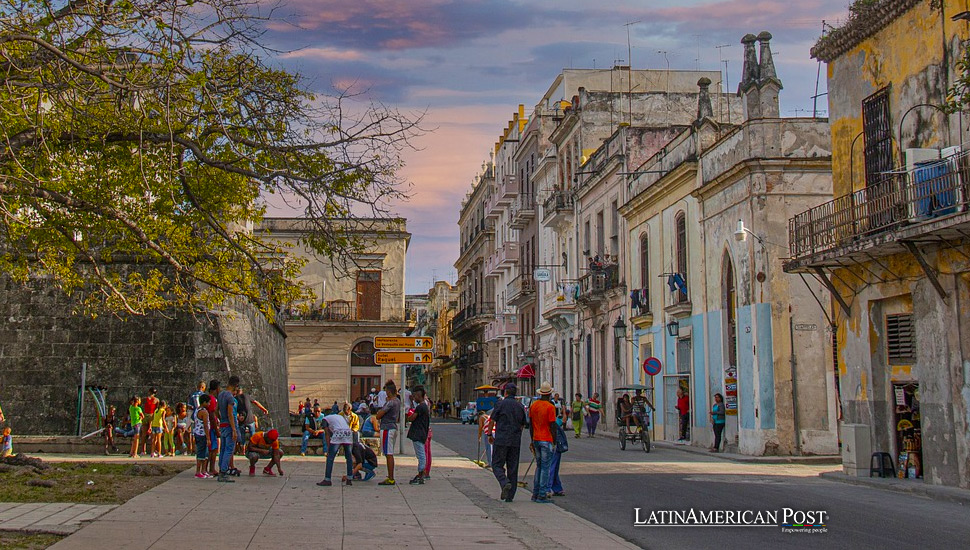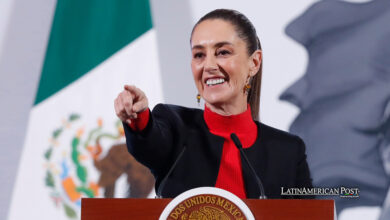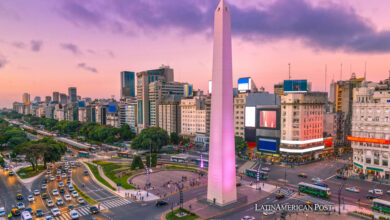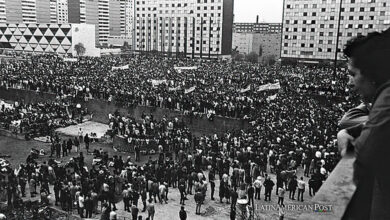Cuba Secures Food Supply to Alleviate Unrest Following Demonstrations

Cuban President Miguel Diaz-Canel vows to stabilize the nation’s food supply, reassuring citizens post-protests and highlighting a broader Latin American struggle with economic crises, shortages, and social unrest, reflecting the region’s shared challenges in governance and resource distribution.
Cuban President Miguel Diaz-Canel recently affirmed his administration’s commitment to bolstering the country’s subsidized food ration system in a significant move to quell growing public discontent. This announcement came after spontaneous protests erupted across the island, signaling deep-seated frustrations over acute shortages and prolonged power outages.
Government Efforts and Optimism
Diaz-Canel, addressing the nation via a mid-day television broadcast, underscored the “enormous effort” by his government to secure essential food supplies for Cuba’s 11 million inhabitants. He optimistically projected April and May as months of improved supply to stabilize the public’s growing concerns over necessities.
Cuba’s ration system, a legacy of Fidel Castro’s 1959 revolution, has been a cornerstone of the nation’s socialist model, providing monthly allotments of staples like rice, beans, sugar, cooking oil, and coffee. However, the economic turmoil that has gripped the island for years, exacerbated by stringent U.S. sanctions, an inefficient state-run economy, and the tourism sector’s slow recovery post-pandemic, has severely strained this system.
The palpable frustration over these shortages and oppressive blackouts lasting up to 20 hours ignited protests in key locales such as Santiago de Cuba, Bayamo, and Matanzas. Traditionally a stronghold of government support, Santiago witnessed unprecedented public dissent, signaling a shift in the political climate and the populace’s patience.
Government Response and Temporary Quelling of Protests
In response, the Cuban government swiftly enacted measures to alleviate the immediate crises, notably improving electricity generation to curb the rampant blackouts that had intensified public grievances. This rapid governmental action seemingly quelled the protests, at least temporarily.
Oscar Pérez, the vice minister of foreign trade, reassured the populace through the state-run media that essential food items, particularly rice, would be secured until June. Efforts were also underway to ensure the continuous supply of wheat flour for bread and milk for children, essential commodities that have become symbols of the country’s broader economic challenges.
The economic strain of maintaining Cuba’s food ration program is immense, with monthly costs reportedly reaching $230 million. This financial burden underscores the systemic issues facing the Cuban economy, which struggles to finance its social programs amid external pressures and internal inefficiencies.
The Cuban scenario is emblematic of a larger narrative across Latin America, where countries grapple with economic instability, resource scarcity, and the delicate balance of social welfare against political turbulence. Cuba’s recent protests and subsequent governmental assurances reflect a common regional theme of public demand for accountability and sustainable living conditions.
Latin America’s Shared Struggles
Similar tales of economic hardship and social unrest unfold in neighboring countries, painting a picture of a region united in its struggle against financial adversity and the quest for social equity. From Venezuela’s economic collapse and ensuing humanitarian crisis to Argentina’s battle with inflation and debt, economic and social challenges weaves through the continent, binding these nations in a shared historical and geopolitical tapestry.
Latin America’s history of political volatility, economic crises, and social movements provides a context for understanding Cuba’s current situation. The region’s collective experience with authoritarian legacies, populist movements, and neoliberal experiments offers a lens through which to view the Cuban government’s efforts to navigate its economic predicament and the public’s response.
Also read: A Comprehensive Approach to Cuba’s Nutritional Problems
While Diaz-Canel’s assurance of improved food supply in Cuba offers a temporary respite, it also highlights the broader challenges Latin American countries face in ensuring economic stability and social welfare. The echoes of Cuban protests resonate across the region, serving as a reminder of its people’s interconnected struggles and aspirations, bound by a shared history of resilience and a continuous quest for a more equitable and sustainable future.





